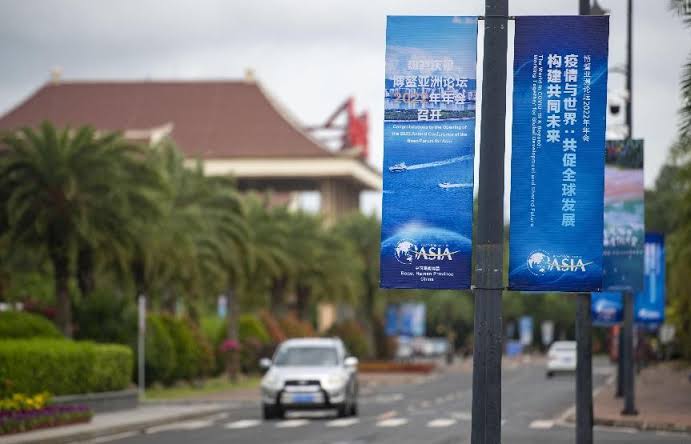As the world undergoes profound changes and a pandemic both unseen in a century, new traditional security risks and governance issues are arising, further fueling the tensions in international situation and increasing the difficulty of maintaining international order.
Against this backdrop, Chinese President Xi Jinping, aiming to safeguard common interests of the world and create a future shared by mankind, encouraged the world to work together to tackle global governance challenges and embrace a global governance philosophy that emphasizes extensive consultation, joint contribution and shared benefits, when addressing the opening ceremony of the Boao Forum for Asia (BFA) Annual Conference 2022 on April 21.
He also stressed promoting the common values of humanity and upholding true multilateralism, saying it is particularly important for major countries to lead by example.
His proposals fully demonstrated China’s sense of responsibility to lead the reform of global governance system and promote historical progress in the quest of peace and justice.
The world must uphold solidarity as it rises up to global governance challenges.
“In this day and age, the international community has evolved so much that it has become a sophisticated and integrated apparatus. Acts to remove any single part will cause serious problems to its operation. When that happens, both the victims and the initiators of such acts will stand to lose.”
President Xi’s simile vividly explained that countries around the world share a same future. Facing outstanding global challenges, the right choice remains to enhance international cooperation and give full play to the global governance system, rather than doing the opposite and arbitrarily hindering international cooperation under all kinds of excuses.
Since the outbreak of the Ukraine crisis, some countries have been trying to tie the whole world to it, turning world economy into a political issue, a tool and even a weapon, with a total disregard for whether it would impact the life of the people around the world.
Such practice will not help solve the crisis at all, and may destroy the international economic cooperation outcomes achieved in the past decades.
As it confronts global governance challenges, the world must uphold real multilateralism.
While the globe remains in the grip of the pandemic, it is facing new traditional security risks. Meanwhile, the widening development gap is further bothering the sluggish global recovery, and new issues such as digital governance are emerging while climate change and other governance issues still need to be addressed.
It is never a good idea to go it alone to solve these problems. Global actions, response and cooperation are required to overcome these concerns. Only by practicing a global governance philosophy that emphasizes extensive consultation, joint contribution and shared benefits, can countries expand common ground and build the most powerful strength.
Hegemonism and power politics are presently posing a grave danger to the world’s peace and progress. It is urgent to uphold true multilateralism and firmly safeguard the international system with the UN at its core and the international order underpinned by international law, which is also a common aspiration of the international society.
Major country must fulfill their responsibilities as the world rises up to global governance challenges.
A country’s international status is measured by its openness of mind, breadth of vision, and sense of responsibility rather than its size, strength or power. “It is particularly important for major countries to lead by example in honoring equality, cooperation, good faith and the rule of law, and act in a way befitting their status,” President Xi said.
To maintain their hegemonic status, a few major countries have stuck to Cold War mentality and provoked confrontations, which further exacerbated tensions and separation, making more troubles for the troubled world.
In today’s world, unilateralism and excessive pursuit of self-interest are doomed to fail; so are the practices of decoupling, supply disruption and maximum pressure; so are the attempts to forge “small circles” or to stoke conflict and confrontation along ideological lines. Major countries should follow the trend of the times and play a constructive role in global governance.
China is enhancing and improving global governance with concrete actions. Facing the ravaging COVID-19 pandemic, it is actively promoting all relevant parties to improve global public health governance, so as to build concerted strength against the virus. When addressing the outstanding security risks, it has proposed a Global Security Initiative to contribute to the reform of the global security governance system. To jump-start the sluggish world economy, the country is also committed to improving global economic governance and building an open world economy. It has raised and is implementing the Global Development Initiative to help countries tide over difficulties.
Countries around the world are like passengers aboard the same ship who share the same destiny. For the ship to navigate the storm and sail toward a bright future, all passengers must pull together. The thought of throwing anyone overboard is simply not acceptable.
Difficulties and challenges are not to be afraid of. What’s important is to up hold solidarity and be courageous. China will collaborate with the international community to follow the trend of the times featuring peace, development and win-win cooperation, cope with global challenges with cooperation and enhance global governance with concrete actions, so as to move in the direction of building a community with a shared future for mankind.



